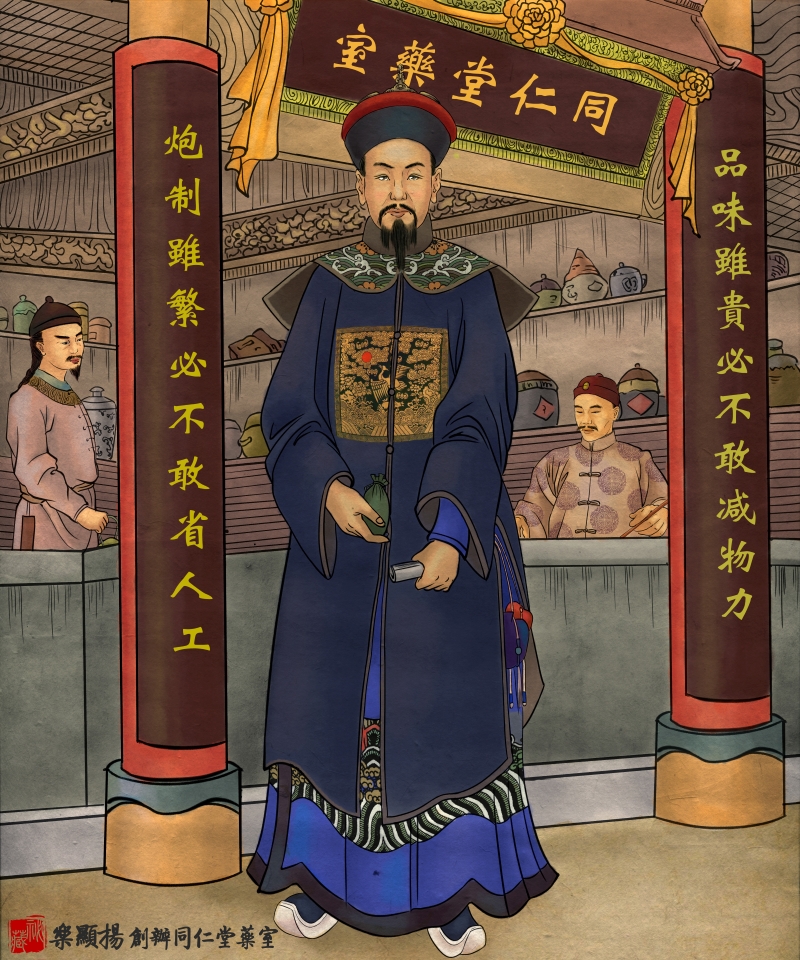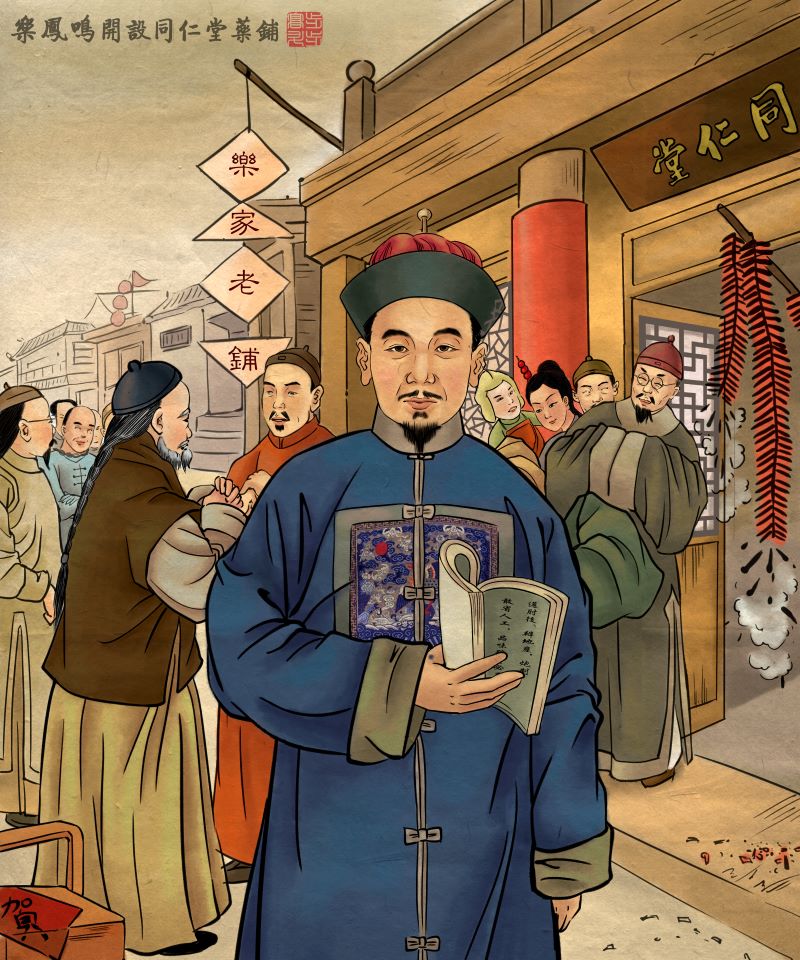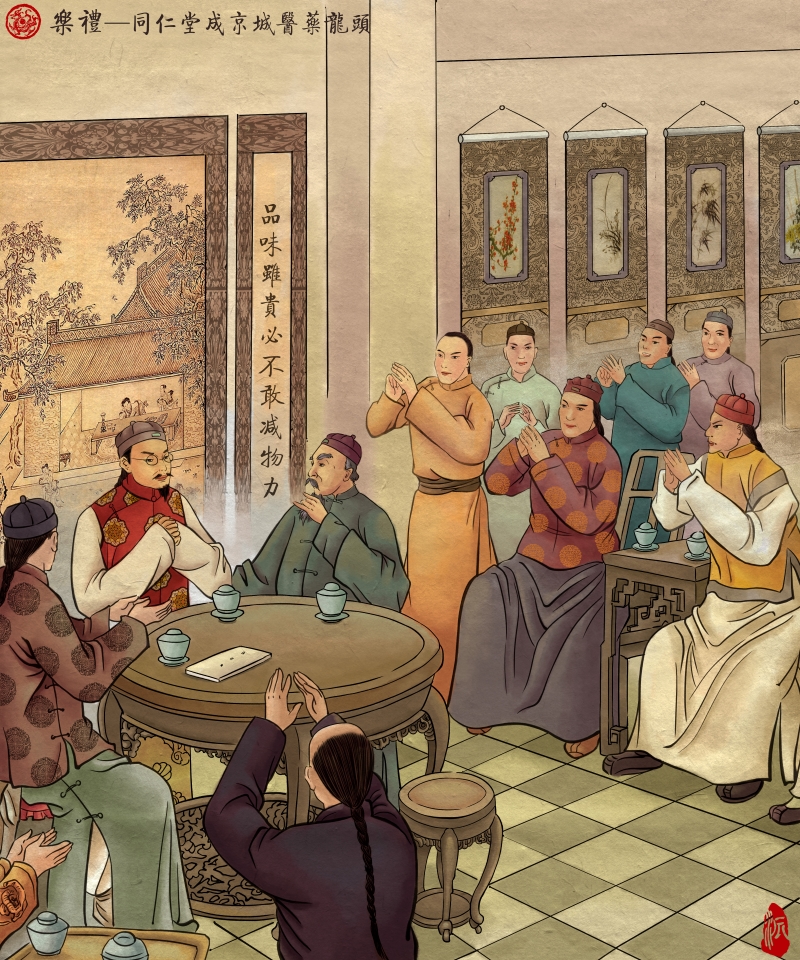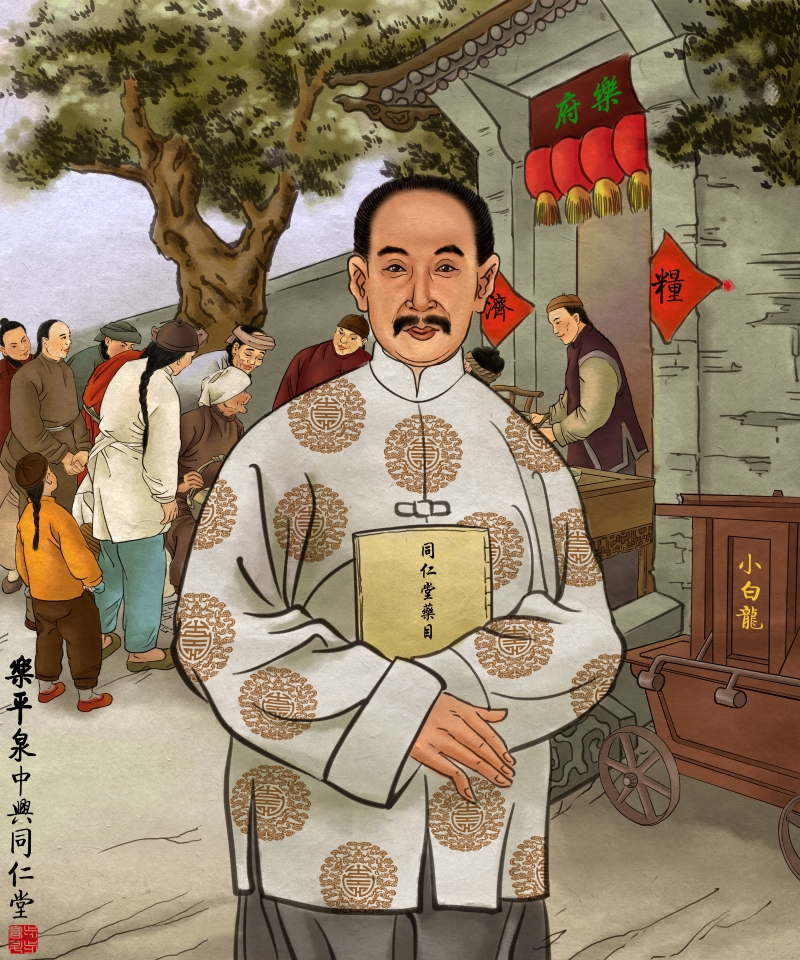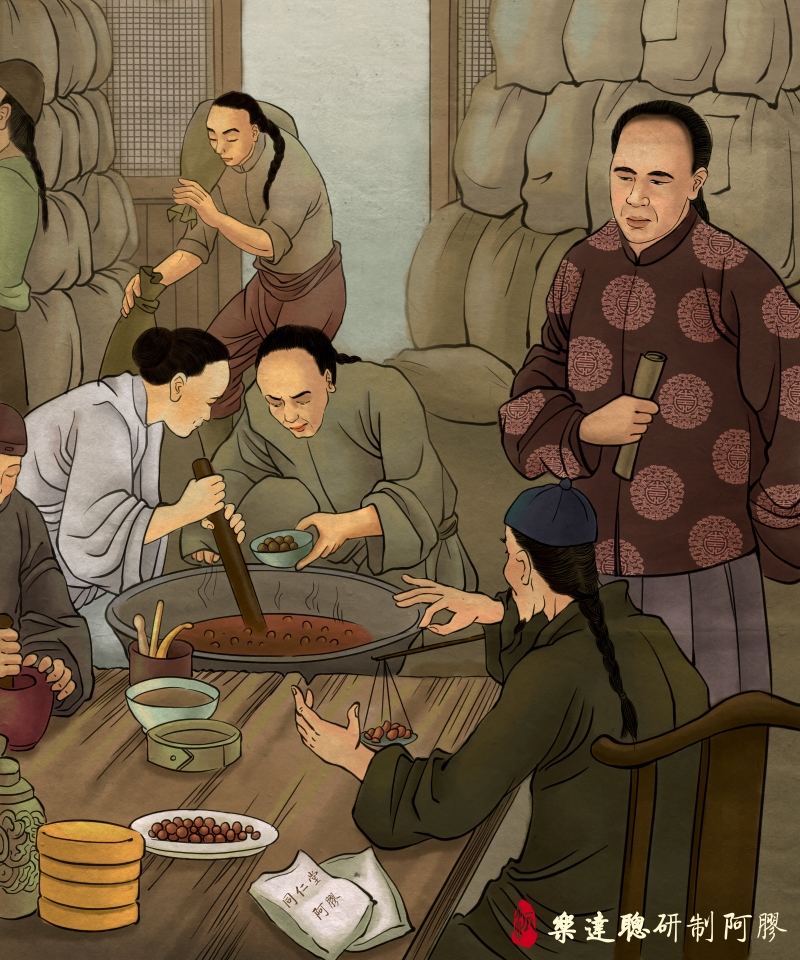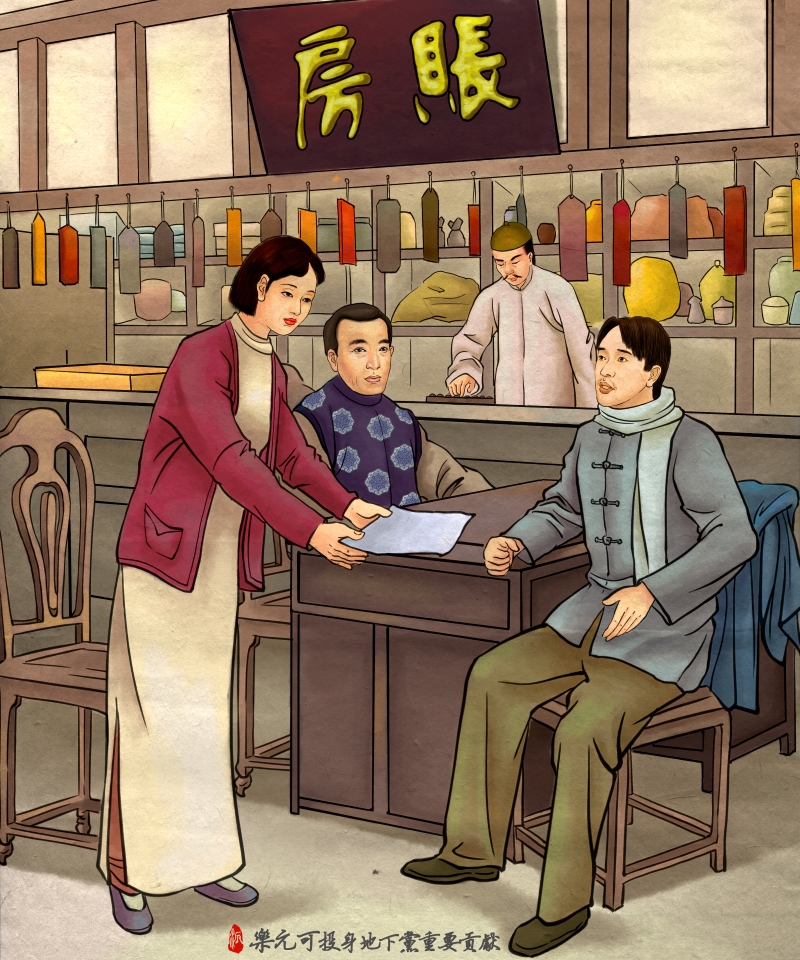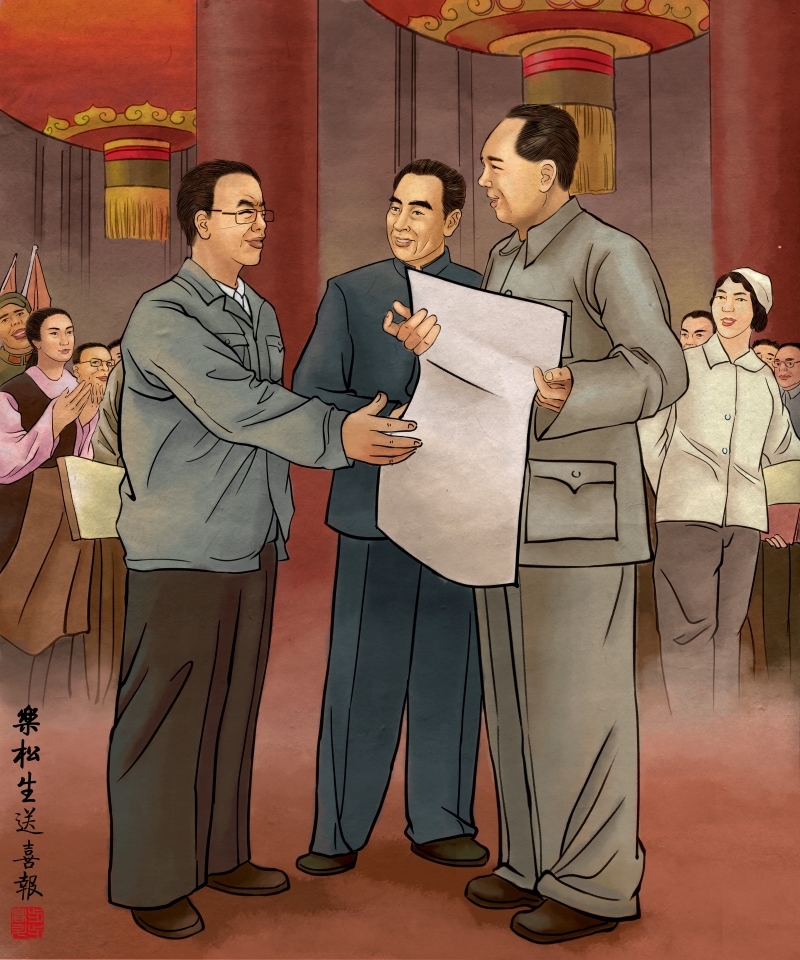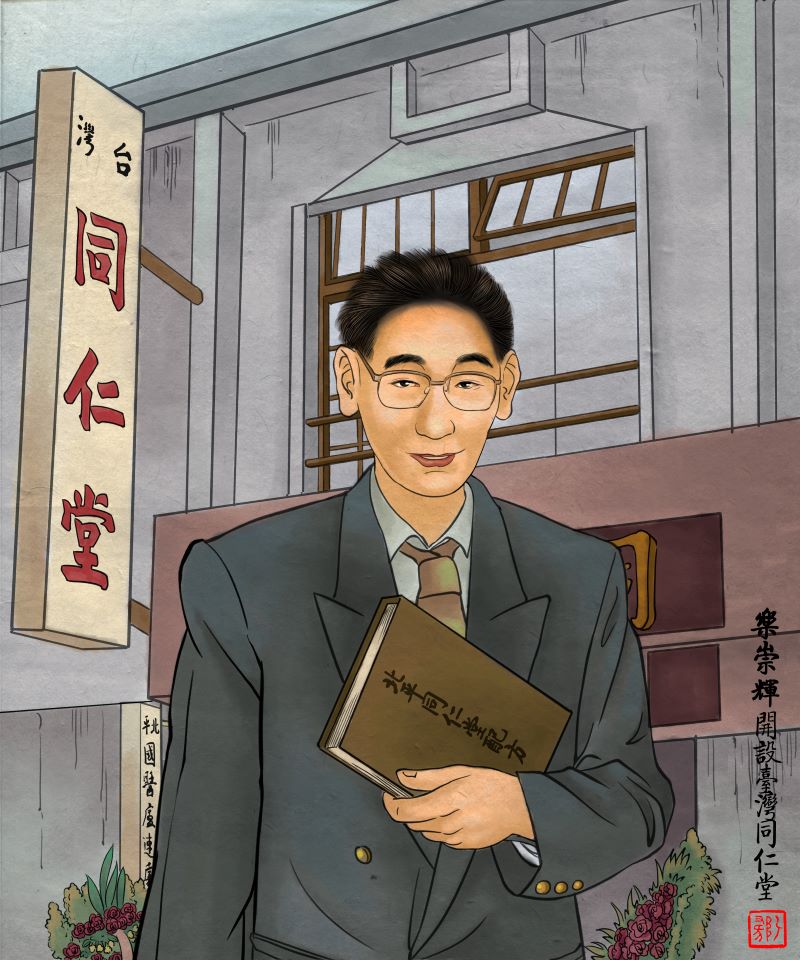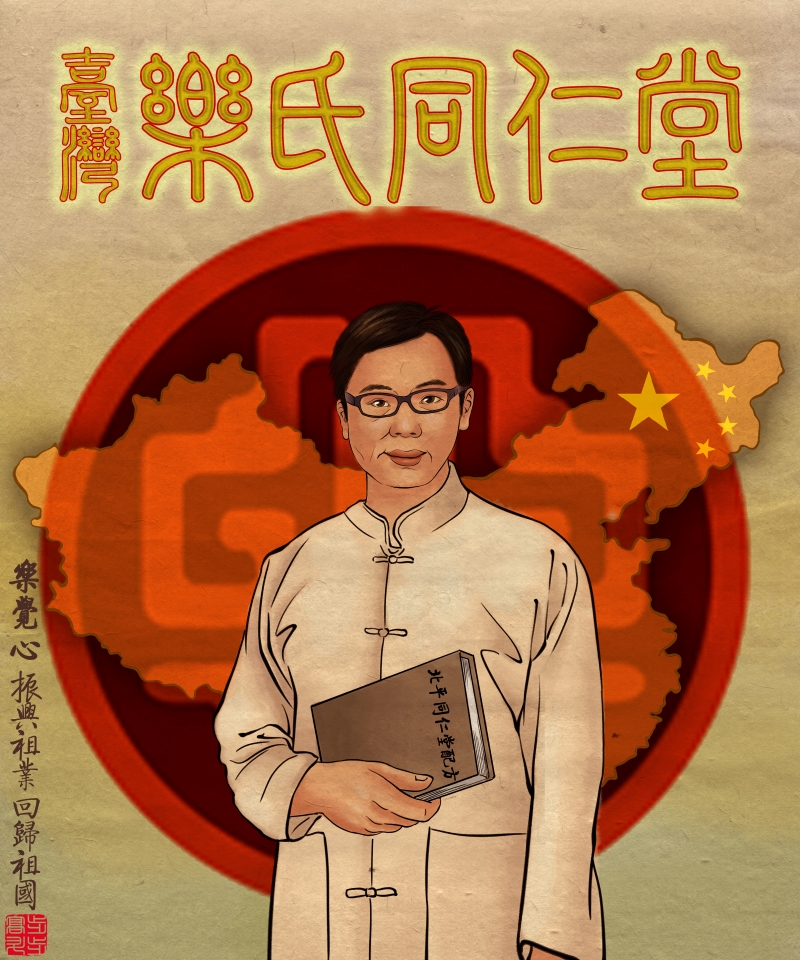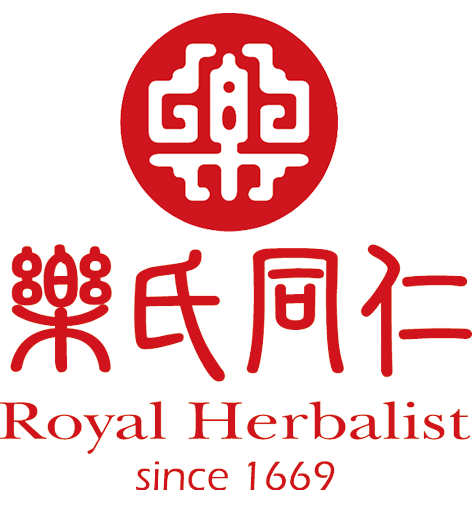HALL OF FAME
The Le family lived in the Ningbo area of Zhejiang Province for a long time. The 26th generation of the Le family, Le Liangcai, moved from Ningbo to Beijing during the Ming Dynasty's Yongle and Zhu Di relocation. He worked as a Suzuki doctor and practiced medicine on the streets of the capital. He is the founder of the Le clan in Beijing.
The fourth generation descendant of the Le family in Beijing, known as Zunyu, was appointed as an official of the Langtai Hospital in Dengshi, and was conferred the title of Wenlinlang in Jin. He was gifted to Doctor Zhongxian, and in the eighth year of the Kangxi reign of the Qing Dynasty (1669), he received funding from the Kangxi Emperor. He adopted the meaning of "cultivating benevolence and promoting health" and shared the same pronunciation with the "Bronze Man" in the meridians to establish the Tongrentang Pharmacy.
Le Fengming, also known as Wugang, was the fifth generation descendant of the Beijing Lejia family. He was appointed as a cabinet secretary and was conferred the title of Wen Linlang. He was appointed as a direct official in the Jin dynasty. In the 41st year of the Kangxi reign (1702), Tongrentang Pharmacy was relocated to the south of Dashilan Road outside the front gate of Beijing and Tongrentang Pharmacy was opened; In the 45th year of the Kangxi reign (1706), the compilation of the "Formulation of Pills, Powder, and Cream Pills passed down from generation to generation by the Le family" was compiled. In the preface, it was first proposed that "following the rules and distinguishing the real estate, although the processing is complicated"
The sixth generation leader of the Le family in Beijing adopted the method of "retiring official medicine" to advance and gained strong support from the Qianlong Dynasty. He allowed the Le family to supply medicine to the court in advance, which made Tongrentang a leading pharmaceutical merchant in the Chinese medicine industry in the capital at that time. A new drug "Da Huo Luo Dan" has been developed based on the original "Da Shen Xiao Huo Luo Dan", making it one of the famous medicines in Tongrentang.
In the 23rd year of the Daoguang reign (1843), Le Pingquan, the tenth generation inheritor of the Beijing Le family, managed well and extensively carried out charitable deeds in Tongrentang, which established a solid foundation and reputation in the traditional Chinese medicine industry of Tongrentang. In the fifteenth year of the Guangxu reign (1889), the "Tongrentang Medicinal Catalogue" was reissued.
Xu Yefen, the wife of Lepingquan, the tenth generation descendant of the Beijing Le family, took charge of Tongrentang. After the Eight Nation Alliance withdrew from Beijing, the Lejia Old Shop in Tongrentang was rebuilt with strict pharmacy. When making the "Purple Snow Pill", the ancient prescription required "to use a gold pot and a silver shovel". In order to comply with the strict teachings of the Lejia family, the Xu family asked the Lejia female family to gather one hundred taels of gold and silver jewelry and add them to the medicinal herbs to ensure the ancient prescription
The 12th generation descendant of the Beijing Le family, Le Dacong, also known as Duo and Jingyu, is a famous pharmaceutical expert and the prototype of the protagonist Bai Jingqi in the TV series "Da Zhai Men". In 1912, Hongjitang ass hide glue factory was set up in Shuiliu Street, West Guandong, Jinan, and the original "nine day and night practice ass hide glue method" was created to produce 12 kinds of ass hide glue with the characteristics of living alone, which were sold to Shanghai, Guangzhou, Zhejiang, Fujian, Japan, Southeast Asian countries, and ass hide glue markets
Le Yuanke, the 13th generation of the Beijing Le family, actively devoted himself to the revolutionary cause and was responsible for the underground party treasury and intelligence station work in Beijing. During the Anti Japanese War, he and his wife Li Zheng transmitted intelligence to the underground party, kept important documents, and disregarded personal safety to protect Communist Party members, making great contributions to the liberation of Beiping.
Le Songsheng, the 13th generation of the Le family in Beijing, represented the business community in Beijing by climbing onto the Tiananmen Gate Tower in 1956 to submit the happy report of Beijing's comprehensive realization of public-private partnership to Chairman Mao Zedong, Vice Chairman Liu Shaoqi, and Premier Zhou Enlai. Formerly served as the first General Manager of Beijing Tongrentang, Vice Mayor of Beijing, Representative to the First, Second, and Third National People's Congress, and Vice Chairman of the All China Federation of Industry and Commerce.
The 13th generation descendant of the Le family in Beijing. In 1949, Le Chonghui brought his family to Taiwan with his ancestral ancient recipes, formulas, and secret books. In March 1952, he founded the Taiwan Le Tongren Hall on Kaifeng Street in Taipei, and the Le family continued to develop in Taiwan.
The 14th generation inheritor of the Le family in Beijing, with the mission of inheriting their ancestral heritage and revitalizing the Tongrentang culture, advocates for the creation of the Taiwan Le family Tongrentang Culture Museum, promotes the new Confucian medicine culture, and establishes the Tongrentang Le family kinship association. In 2013, Le Juehxin actively responded to the call for the return of national time-honored brand inheritors, and decided to bring the Le family's ancestral secret recipe, traditional handmade medicine and pharmaceutical technology, as well as the Le family Tongtong





.jpg)
